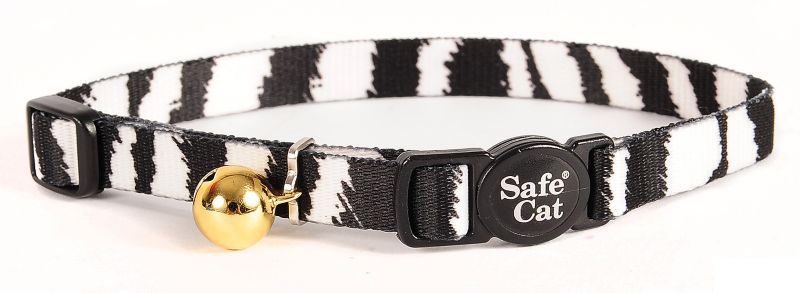Cats are predators; they like to kill
things. Cats naturally kill mice and birds. Nobody seems to mind to
much when a cat kills a mouse, in fact cats are often kept as
mousers, but people tend to be very upset when cats kill birds.
There are several ways a cat owner can
prevent their cat from killing birds.
Preventing Outdoor Cats from Killing Songbirds
Cats that go outside are a major threat
to songbirds. While some cats do not bother birds, and others are
quite inept at catching them, a clever, and patient, cat can kill a
bird every day that it is outside. There are several things you, as
a cat owner, can do to reduce the risks of your cat catching and
killing birds.
Provide your cat with a collar and
bell. A clever cat will learn how to move without ringing the bell
but at least it is better than nothing. Birds are good at seeing
colors so try to buy a collar that is easy to see on your cat.
Click here to see Safe Cat Breakaway Collars
Do not encourage birds in your yard, do
not have a bird bath or feeder that would attract them.
Build your cat an outdoor cat enclosure
so when your cat is outside it is enclosed. Not only will this make
it harder for your cat to catch birds, but also keeps your cat safely
within your yard.
Let your cat out on a harness. Cats
must be trained first for this and ideally not left tied outside
without supervision.
Training Your Cat Not to Kill Pet Birds
If you have a cat and have pet birds
you may be concerned about your cat going after them and killing
them.
Small and flighty birds are the ones
that a cat is most likely to attack. Larger birds, and those that
are not as nervous, will not behave like prey and as such the cat is
less likely to go after them. Large birds such as parrots can bite
back if threatened.
Cats can be discouraged from attacking
pet birds through consistent training. When a cat shows any interest in the
bird the cat should be given a quick squirt with a water bottle.
Never squirt the cat after it leaves the area as this is just
tormenting the cat and it will not understand the relationship to the
bird. Until the cat is fully trained and shows no interest in your pet bird they should not be allowed together.
Offer the cat treat rewards when in the
room with the bird and is ignoring it.
Your pet bird must have a safe, and secure bird cage (one that will not tip over), just in case!
Click to see A and E Dometop Bird Cages
If you do not already have a cat, but
do have a bird and are considering getting a cat, you may want to select a kitten. Kittens are easier to
train rather than a mature cat that perhaps has already
enjoyed chasing birds. Or you might try to adopt a cat that has
already lived with birds and is good with them.
Please note declawing does not prevent
a cat from killing birds; cats kill with their teeth. Remember that
cats are natural predators, to punish a cat for being a cat is
unfair, a good owner would find other ways to prevent their cat from
killing birds.
Other Reading



